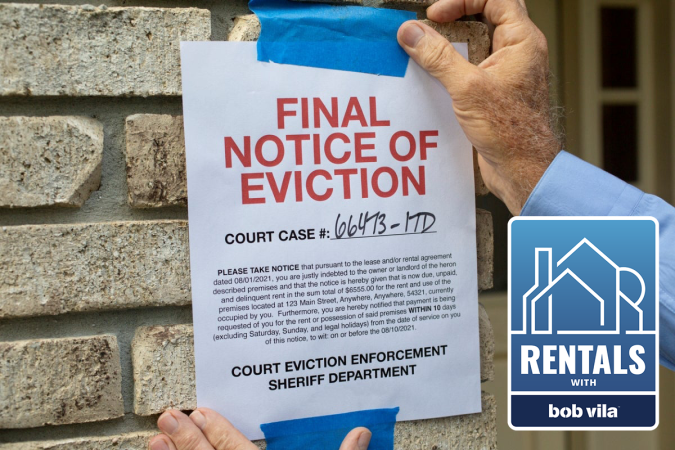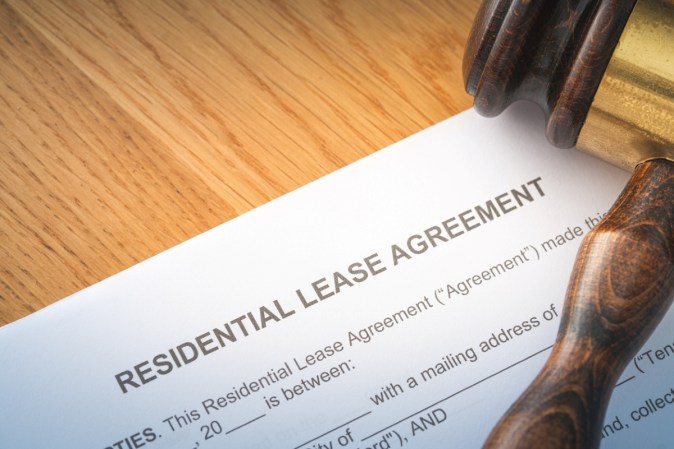We may earn revenue from the products available on this page and participate in affiliate programs. Learn More ›
The 2008 housing crash changed the landscape of rental housing in the United States, forcing many smaller landlords to go out of business or sell to larger corporate entities—including private equity, real estate investment trusts (REITs), and hedge funds—able to withstand the market’s fluctuations. According to census data analyzed by the National Multifamily Housing Council, a lobbyist group that represents landlords, by 2021, 38 percent of multifamily buildings were owned by individual investors, 42 percent were owned by corporate entities, and 3 percent were owned by real estate investment trusts. The private equity giant Blackstone spent $5.1 billion on 80,000 multifamily housing units in 2021. The private-equity-backed Progress and its affiliated companies have purchased almost 90,000 properties nationwide in recent years, focusing on fast-growing metropolitan areas, including Austin, Texas; Denver; Salt Lake City; and Tampa, Fla., its website shows.
If you are one of the hundreds of thousands of tenants whose apartment building or rental house has been sold to a private equity company, you have a right to be concerned. Any landlord scooping up tens of thousands of properties is likely to find it impossible to stay on top of every unit they own, at least initially. Problems are likely to slip through the cracks, which, according to multiple reports, is exactly what’s happened. Here are some of the main things to watch out for.
RELATED: The State of Renting in 2023: What All Tenants and Landlords Need to Know
Monthly rent might go up.
Rent increase is by far the most common side effect of a corporate takeover. Private equity companies are likely to raise rents by as much as 30 percent if your city does not limit yearly increases. If you cannot pay the new rate, they will replace you with someone who can. The big guys have the significant cash flow that’s generated by multiple properties and can more easily absorb the loss of one month’s rent while securing another tenant, especially if they can get a higher-paying tenant into the unit.
Small-scale landlords, however, would feel the hit of a month or two of vacancy much more severely than a big landlord. This means they might be less likely to significantly increase your rent and cause a potential vacancy.
RELATED: 10 Things a Landlord Cannot Do
Services could be dropped or scaled back.

When a private equity company buys an asset such as an apartment building, they will go through each expense line by line to see where they can reduce costs. For example, if they see the landscapers coming once a week, they may put them on a bi-weekly schedule. The same might apply to hallway cleanings or insect extermination.
More traditional landlords, on the other hand, have that extra incentive to dissuade tenant turnover, and will likely provide a continuation of services without interruption.
RELATED: The Best Renters Insurance Companies
Heat or hot water could go out.
When utilities management is transferred from one landlord to another, many tenants have noted that they have experienced a loss of hot water and heat. Handing over 90,000 apartments can overwhelm management companies who might need clarification about who pays what and which bills should be paid when. All of this can result in a bad experience for the tenant. This isn’t an issue, of course, in the case where tenants pay their own utilities.
RELATED: 10 Things You Should Never Do in a Rental Home
High interest rates could affect “extra” services.
Recent high interest rates have caused many landlords to feel the pinch regarding cash flow. This pinch is felt by landlords up and down the size spectrum, with everyone tightening their purse strings until they can refinance once rates drop. If your apartment building or rental house was purchased during the current high rate cycle, certain beautification projects (seal-coating parking lots, landscaping, pool resurfacing, and even painting) could be delayed or canceled.
RELATED: Renters: When to Accept an Oral Agreement and When to Insist on a Written Contract
Management companies may be unresponsive.

A smaller, privately owned apartment building will likely have a close-knit team or a superintendent who lives in the building to handle repairs. If your house or apartment was previously occupied by the now-landlord, they might even show up with their tool belt because they will know the house or apartment better than anyone.
However, during the transition period from one owner to another, a management company hired by a corporation responsible for managing thousands of other units might miss your repair request. You might find it difficult to get questions and complaints answered until they’re organized and can put an efficient system in place.
Tenants might see fewer protections.
Many tenants have complained about a lack of tenant protections when their apartment buildings have changed hands to corporate owners. These include vermin extermination, exterior light and security camera maintenance, and security guards. In many cases, tenants have taken legal action to protect their rights.
RELATED: Renters: How to Know If You’re Being Discriminated Against and What to Do About It
There could be more lease restrictions.
Smaller landlords (under 20 units) will likely stick to basic yearly (12-month) leases. However, the larger the landlord is, the more complex the leasing time frame will likely be, ranging from 6 months to two years. That’s because they use algorithms from their management software to calculate the most profitable leasing structure across their portfolio. Landlords are specifically keen to ensure their apartments remain filled during winter months when it is harder to find new tenants. Developments with hundreds or thousands of units have a constant turnover, so safeguarding against mass vacancies in certain seasons is a priority and factors into the leasing time frame they are willing to offer.









